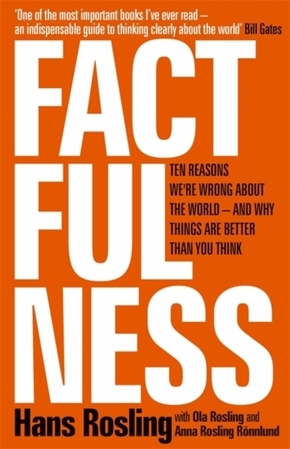
Factfulness - Ten Reasons We're Wrong About The World - And Why Things Are Better Than You Think. Longlisted for the FT/McKinsey Business Book of the Year Award
| Verlag | Hodder & Stoughton |
| Auflage | 2018 |
| Seiten | 352 |
| Format | 13,0 x 20,5 x 2,8 cm |
| Print PDF. | |
| Gewicht | 414 g |
| Artikeltyp | Englisches Buch |
| ISBN-10 | 1473637465 |
| EAN | 9781473637467 |
| Bestell-Nr | 47363746UA |
OVER A MILLION COPIES SOLD
'A hopeful book about the potential for human progress when we work off facts rather than our inherent biases'
BARACK OBAMA
'One of the most important books I've ever read - an indispensable guide to thinking clearly about the world'
BILL GATES
The international bestseller, inspiring and revelatory, filled with lively anecdotes and moving stories, Factfulness is an urgent and essential book that will change the way you see the world, and make you realise things are better than you thought.
_#1 Sunday Times bestseller _ New York Times bestseller _ Observer 'best brainy book of the decade' _ Irish Times bestseller _ Guardian bestseller _ audiobook bestseller _
Rezension:
A hopeful book about the potential for human progress when we work off facts rather than our inherent biases. Barack Obama
